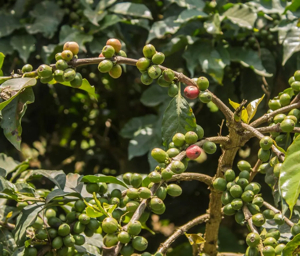Kenyan coffee farming, renowned for its high quality and distinct flavor profiles, faces challenges such as climate change, pests, diseases, and market access. To address these issues and boost productivity, farmers, cooperatives, and industry players are increasingly adopting technology and innovation. These advancements are transforming traditional coffee farming into a more sustainable, efficient, and profitable enterprise.
Precision Agriculture and Smart Farming
Remote Sensing and GIS Technologies
Geographic Information Systems (GIS) and remote sensing technologies enable farmers to monitor their farms more accurately. Satellite imagery and drone applications help assess soil health, moisture levels, and crop vigor, facilitating targeted interventions. For example, farmers can identify precisely where to irrigate, fertilize, or control pests, reducing resource wastage and increasing yields.
Soil Testing and Data Analytics
Using digital soil testing kits and sensors, farmers can collect real-time data on soil fertility, pH, and moisture content. Analyzing this data helps optimize fertilizer application and improve crop health. Data analytics platforms can also predict disease outbreaks or pest infestations, enabling proactive measures.
Climate-Smart Technologies
Weather Forecasting and Early Warning Systems
Access to localized weather data through mobile apps and SMS alerts allows farmers to plan activities such as planting, spraying, and harvesting. Early warnings about droughts, heavy rains, or frost help minimize crop losses and adapt farming schedules accordingly.
Drought Tolerant Varieties and Climate-Resilient Practices
Research and development have produced coffee varieties that withstand drought and temperature fluctuations. Farmers can incorporate these resilient varieties into their farms, reducing vulnerability to climate change.
Pest and Disease Management Technologies
Mobile Apps for Disease and Pest Identification
Farmers can use mobile applications to identify pests and diseases accurately using images and symptom descriptions. This rapid diagnosis facilitates timely application of control measures, preventing severe damage.
Biological Control and Biopesticides
Innovations in biopesticides and natural pest control methods reduce reliance on chemical pesticides, promoting sustainable farming practices. These biocontrol agents are environmentally friendly and help maintain coffee quality.
Digital Marketplaces and E-Commerce Platforms
Online Market Access
Digital platforms connect Kenyan farmers directly with local and international buyers, reducing the middlemen and increasing profits. Farmers can sell specialty coffee beans, beans with certification, or processed products through online markets, expanding their reach.
Traceability and Certification Technologies
Blockchain and QR code systems enhance transparency by tracking coffee from the farm to the consumer. Certified coffee, such as organic or Fair Trade, benefits from increased consumer trust and premium prices.
Automation and Mechanical Innovations
Mechanical Harvesters
Automated harvesting machines are being tested to improve efficiency, especially for large plantations. While still developing, these machines aim to reduce labor costs and ensure uniform harvesting.
Processing Technology
Innovations in coffee processing, such as improved washing and drying machines, maintain high quality standards. Solar dryers, for instance, reduce energy costs and improve drying efficiency in remote farms.
Data-Driven Decision Making
Mobile Apps and Digital Platforms
Various mobile applications provide farmers with tailored advice on planting, fertilizing, pest control, and harvesting based on specific farm data. These decision support tools enhance productivity and sustainability.
Artificial Intelligence (AI) and Machine Learning
AI-driven analytics predict market trends, optimize supply chains, and improve farm management practices. Machine learning models analyze big data to recommend ideal planting dates, varieties, or pest control methods.
Capacity Building and Farmer Training
Digital Learning Platforms
E-learning modules, webinars, and virtual workshops train farmers on modern farming techniques, use of new technologies, and market trends. Continuous education supports the adoption of best practices.
Extension Services via Mobile
Mobile platforms facilitate real-time communication between farmers and extension officers, ensuring access to expert advice and updates on new innovations.
Challenges and Opportunities
While technology adoption offers many benefits, challenges such as limited internet connectivity, high costs of equipment, and lack of digital literacy can hinder widespread implementation. However, partnerships between government, NGOs, financial institutions, and private sector players can bridge these gaps.
Conclusion
Technology and innovation are revolutionizing Kenyan coffee farming by enhancing productivity, quality, sustainability, and market access. Embracing these advancements is essential for Kenyan farmers to remain competitive globally and to adapt to changing climatic and market dynamics. Ongoing research, affordable solutions, and capacity-building efforts will further accelerate this transformation, securing the future of Kenya’s iconic coffee industry.


My brother recommended I might like this blog.
He was onde entirly right. This put up acctually made my day.
You cann’t onsider just how so much time Ihad spent for this info!
Thank you! https://meds24.sbs/
Thank you!!